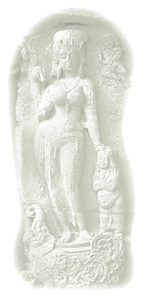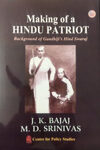The Release Function of our publication AGRICULTURE ATLAS OF MADHYA PRADESH on June 1, 2016 at the IGNCA auditorium was very well attended. The 200 seat auditorium was filled beyond capacity. The function began sharp at 5.00 pm and concluded exactly at 7.00 pm as scheduled. Ma Bhaiyyaji Joshi, in his concluding address, said that Agriculture is the most pristine form of Culture. India agriculture has been the foremost in the world in the past, and it is our responsibility of teaching the world today a form of Agriculture that is rooted in a culture of respect for nature. Dr. Murli Manohar Joshi mentioned that he had an occasion to go through the Atlas with Dr. J. K. Bajaj. He suggested that similar Atlases should be made for all States of the country and for smaller and smaller units within the States. He also said that this Atlas of the Agriculture of Madhya Pradesh has become much more authentic because the Centre has been doing detailed work on the resources of different districts of Madhya Pradesh. Chairman of IGNCA, Shri Ram Bahadur Rai, recalling an early publication of the Centre, Annam Bahu Kurvita, and said that this Atlas is a continuation of that long standing interest of the Centre in Food and Agriculture in the context of Indian Civilisation. He also mentioned two other areas in which the Centre has done major work: Religious Demography of India and study of the Indian Constitution from historical and civilizational perspective. He felt that a detailed discussion on the state of agriculture in the context of the rural economy and the condition of the rural people is urgently required; preparing such Atlases up to the tehsil level shall be of great help in comprehending the situation. Shri Dinesh Kulkarni, Organising Secretary of Bharatiya Kisan Sangh, recalled the long association of the Centre with the BKS in the process of understanding agriculture and evolving an appropriate agricultural policy for the nation. This Atlas is another contribution to that process. Dr. J. K. Bajaj made a detailed presentation on the contents of the Atlas. Prof. Pramod Verma, DG-MPCST, gave history and details of the Atlas programme being conducted jointly by the MPCST and the Centre for Policy Studies. Prof. M. D. Srinivas proposed a vote of thanks. District Resource Atlases of Datia and Tikamgarh were also released on the occasion. About the Agricultual Atlas of Madhya Pradesh This bilingual Atlas comprises the following: MAPS Geography, including topography, rivers, water-bodies, soils and climate of the State; Demography, including the rural-urban distribution and the distribution of the Scheduled Castes and Scheduled Tribes across the districts from 1901 onwards; Land Use, including net cultivated area, gross cultivated area, double-cropped area and area under forests across the districts for 1976-81 and 2005-10; Irrigation, including net-irrigated area, gross-irrigated area and area under different sources across the districts for 1976-81 and 2005-10; Livetstock, including total livestock, livestock per person, and different components of livestock across the districts for 1982 and 2007, along with graphs of growth from 1966 to 2007; Area under Cereals, Pulses and Oilseeds across the districts for the period 1976-81 and 2004-09; Area under Different Cereals Crops, across the districts for 1976-81 and 2004-09; Area under Different Pulses Crops, across the districts for 1976-81 and 2004-09; Area under Different Oilseeds Crops, across the districts for 1976-81 and 2004-09; Area under Other Crops like cotton, sugarcane, vegetables, fodder, etc., across the districts for 1976-81 and 2004-09; Per Capita Production of Different Crops, for 1976-81 and 2004-09; Long-term Trends of Growth In addition to the Maps mentioned above, the Atlas gives several graphs documenting the growth of different parameters of agriculture from 1964 to 2012 for the State as a whole and for the individual districts. Statistical Tables This section gives tabulates all the state and district level data that has been used in the Maps and the Graphs. Photographs The whole Atlas is illustrated by a large number of photographs showing images of different aspects of the geography and agriculture of different parts of Madhya Pradesh. All this makes this Atlas a highly illustrated compendium of the Agriculture of Madhya Pradesh. The long-term graphs compiled here also provide rigorous documentation of the extra-ordinary growth in all aspects of Agriculture that Madhya Pradesh has experienced over the last about one and a half decade. About the Resource Atlases of Datia and Tikamgarh These are revised and updated versions in Hindi of the Atlases in English that were published earlier. For details of the English versions, click here.
Release of the AGRICULTURAL ATLAS OF MADHYA PRADESH and the Resource Atlases of Datia and Tikamgarh on Wednesday, June 1, 2016, from 4.30 to 7.00 pm at Indira Gandhi National Centre for Arts (IGNCA), Janpath, New Delhi – 110 001






